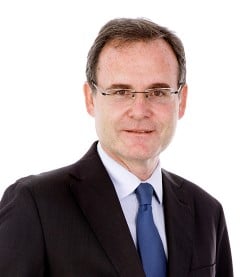
In those cases, following a prior binding ruling of August 2021 (V2265-21), the GDT criterion has been to consider the transferred subsidiary as an asset-holding company and, consequently, make the exemption inapplicable, on the grounds that it had not materially initiated the activity [promoting a solar plant, in the case analysed in such ruling], since neither the mere intention or will to carry it out, nor the simple preparatory actions or actions tending to begin the effective development of the activity [processing and obtaining all the required permits for the development of the installation], imply its material commencement.
In other words, it concluded that the company did not develop an economic activity because it had not materially started it.
However, in the April 2023 ruling, the GDT takes up the criterion it maintained until August 2021, which follows the case law of the Spanish Supreme Court (TS) and National Court (AN) as well as the doctrine of the Spanish highest administrative court (TEAC), according to which "the material commencement of an economic activity is not a necessary condition for assessing the exercise of an economic activity, but rather this qualification must be considered on the basis of the concurrent facts".
The ruling analyses the application of the exemption for the transfer of a subsidiary created for the development and operation of online betting and gaming, at a time when the material activity has not yet begun, but when all the necessary steps have been taken to obtain the licences and permits corresponding to the exercise of this activity.
The GDT states that to determine if the start of an economic activity has occurred, there must be a management, on its own account, of means of production and human resources or one of both, with the purpose of intervening in the production or distribution of goods or services in the market. This is a question of proof for which, following the abovementioned case law and doctrine, all the concurrent factual elements must be considered, without any one of them being of particular importance taken in isolation.
And it concludes that, in the case at hand, the activity carried out by the subsidiary being transferred "is not a succession of actions merely preparatory to the activity of marketing online gambling but is a link in the aforementioned commercial activity that has determined a sequence of actions clearly aimed at the production or distribution of goods and services in the market".
It is deduced from this ruling that the possible classification as an economic activity does not necessarily require its material commencement, but that certain prior actions may constitute an indication of the commencement of such activity, in this case covering the application of the exemption.
Which is very good news that can impact on different sectors of our economy, such as renewable energy or real estate.
However, although the text seems clear, our recommendation, given that it is a question of interpretation, is to analyse on a case-by-case basis the procedures and formalities carried out by the subsidiaries in question without being able to generalise the application of the exemption.


